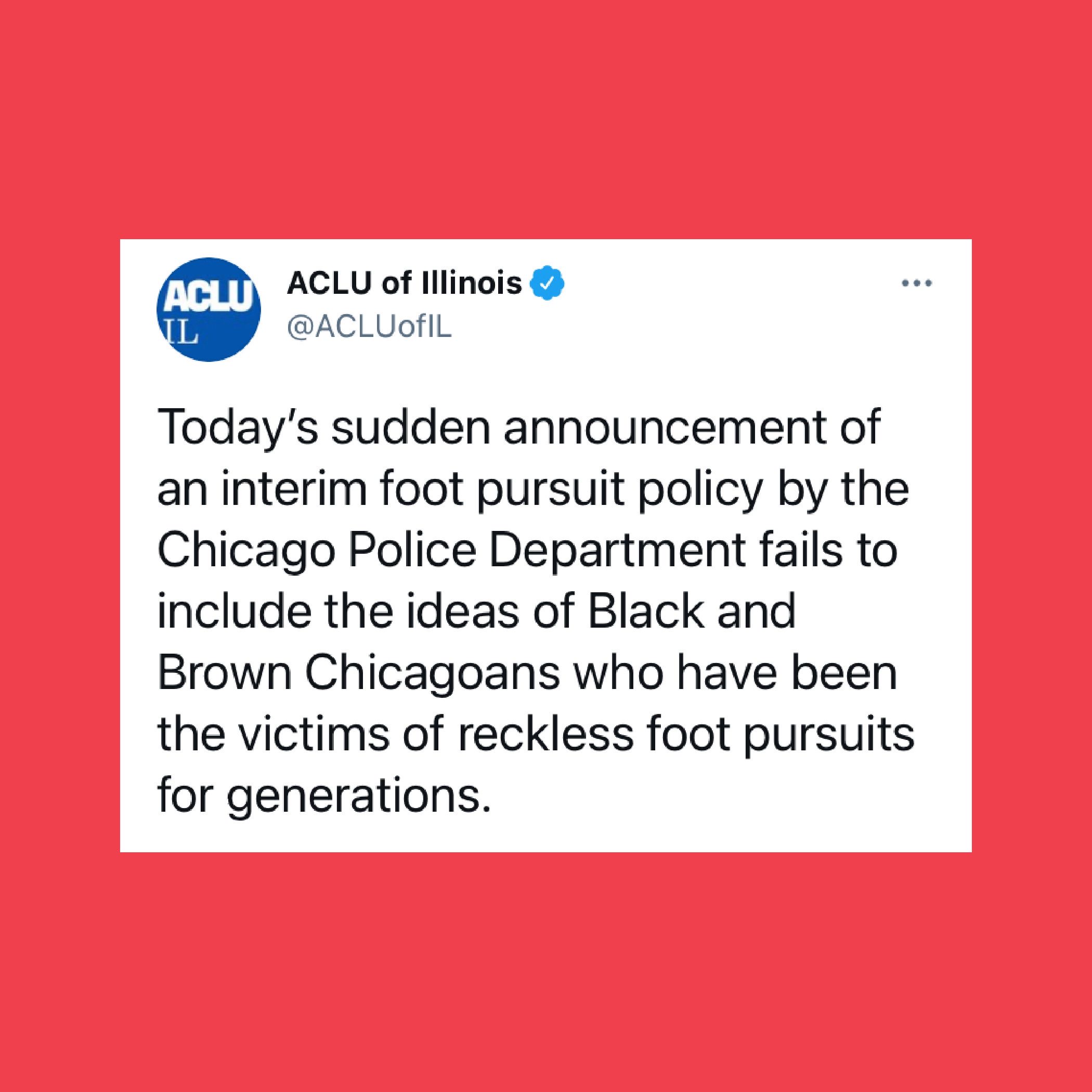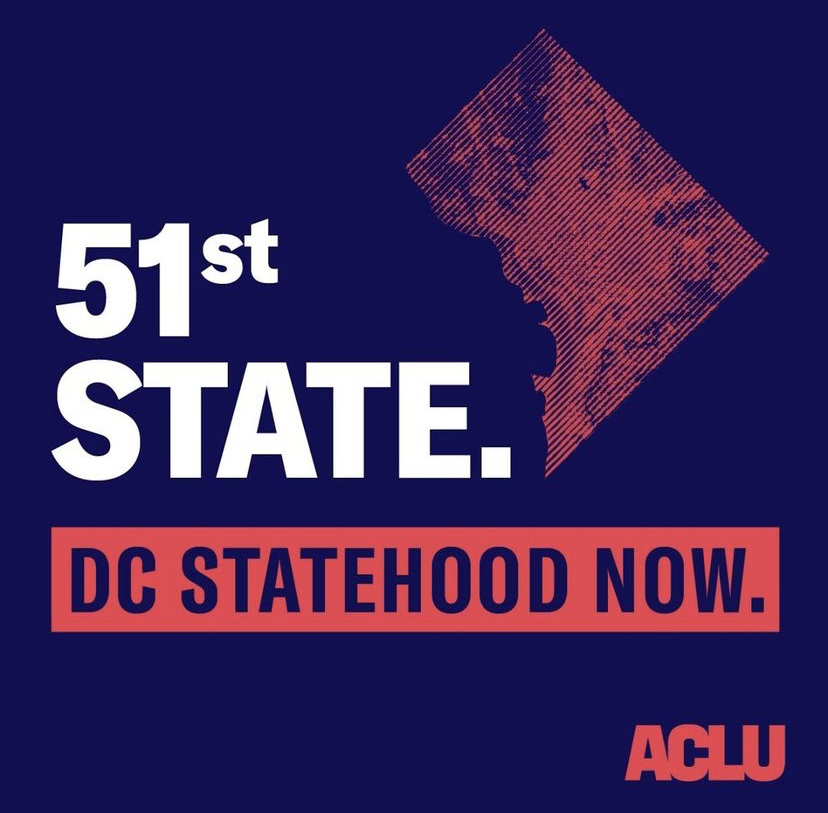The following statement can be attributed to Nusrat Choudhury, legal director at the ACLU of Illinois:
“Today’s sudden announcement of an interim foot pursuit policy by the Chicago Police Department continues to fail in serving residents of the City in at least one critical respect. The policy was developed without incorporating the ideas of Black and Brown Chicagoans who have been the victims of reckless foot pursuits and have stood ready to work with the City on a policy to restrict foot chases. The Superintendent reports on an ‘internal process’ that sought input on the policy from CPD officers, but that process ignored Chicago residents.
The only true path to police reform includes meaningful and deep community input in order to shape policies and practices that end patterns of violent policing that have targeted Chicago’s communities of color for generations. But this requires the City to be truly open to changing policies to reflect community experiences and needs. The Monitor enforcing the Chicago Police consent decree found that the City relegates community engagement to the late stages of policy development and fails to incorporate community engagement which often prevents meaningful community participation.
To achieve real reform, the City must do better.”
Date
Wednesday, May 26, 2021 - 1:45pmFeatured image

